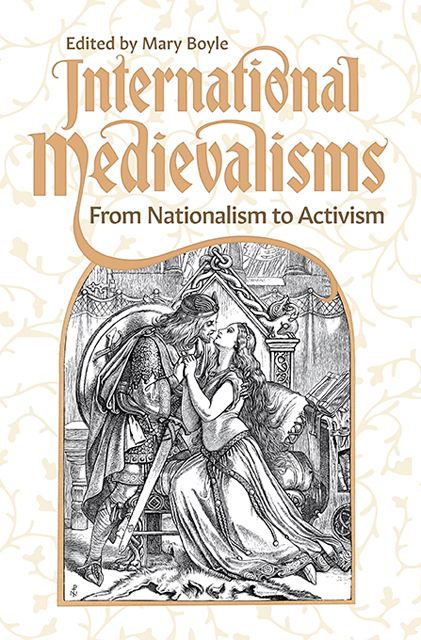4 - Inhabiting an Unpredictable Past: The Paradoxes of Russian Cultural Historicism
Published online by Cambridge University Press: 09 June 2023
Summary
It is frequently said that ‘Russia is a country with an unpredictable past’, so it is no wonder that Russian cultural historicism, while having much in common with analogues elsewhere, is especially paradoxical, even contradictory, and cer¬tainly comes in multiple different versions. Hence what is called, for the purposes of this study, medievalism, is, in its Russian version, both shaped by and revealing of the specific fault lines of cultural history in Russia’s version of modernity and also paradigmatic in other ways for modernity’s problems with history in general.
In the Russian context, hesitation over the word ‘medievalism’ is necessary: while the term ‘Middle Ages’ (srednie veka) is certainly used in Russian, the major polities and cultures of pre-modernity among the East Slavs are for the most part referred to without reference to that term. Meanwhile, the term ‘Russia’ (Rossiya) is also rela¬tively recent, with its equivalent in the Russian language only becoming widespread in the seventeenth century. The East Slavic polities and their cultures before the eighteenth century are generally referred to as drevnyaya, kievskaya, moskovskaya Rus’ (Ancient Rus’, Kyivan Rus’, Muscovite Rus’) – Rus’ was the ethnonym most com¬monly used at the time by the East Slavs of the European medieval and early modern periods, while the adjective drevnii is usually translated as ancient. So not only does what a casual observer might call ‘medieval Russia’ by no means correspond to the territory of the Russian Federation today, nor to the three East Slavic republics of the Soviet Union, nor yet to the Russian Empire before that, but also, in Russian, the very terminology is significantly different: not Russia, but Rus’, not medieval, but ‘ancient’. Moreover, and as a further complication for the foreign observer, this East Slavic version of ‘antiquity’ is generally considered to last, notwithstanding some qualifications, until about the end of the seventeenth century. That is to say, from the earliest East Slavic settlements (a highly contentious landmark, but convention¬ally the eighth century), through the Kyivan and Muscovite periods, including the early Romanov tsars, and up to that traditional big break that supposedly produces ‘modern Russia’: the accession of Peter the Great, soon to call himself ‘Emperor’ (Tsar from 1682, Emperor from 1721 to his death in 1725) and his country the ‘Russian Empire’.
- Type
- Chapter
- Information
- International MedievalismsFrom Nationalism to Activism, pp. 59 - 76Publisher: Boydell & BrewerPrint publication year: 2023



